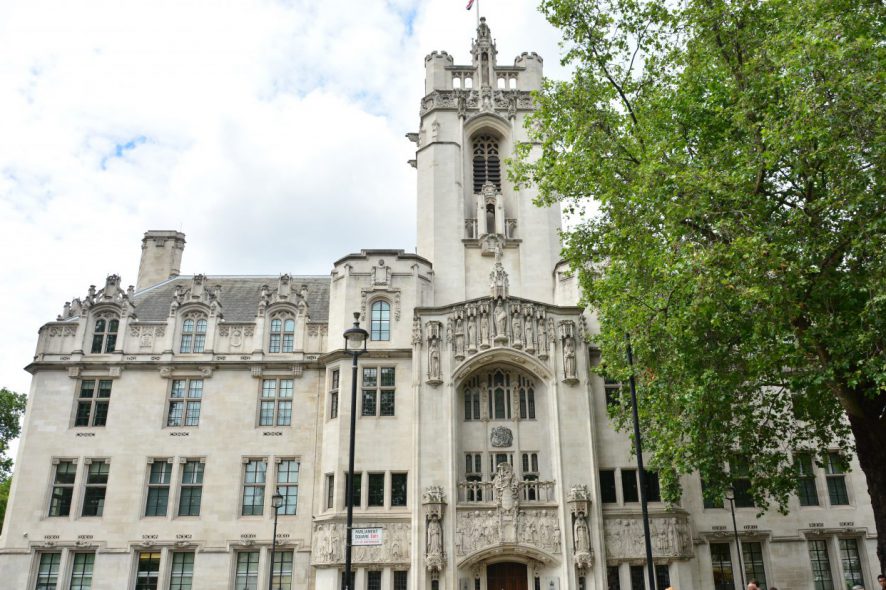UK Supreme Court: A seven-judge bench found Northern Ireland’s abortion law incompatible with Article 8 of European Convention on Human Rights (ECHR). However, it was unable to give ruling to this effect as it observed that the applicant Northern Ireland Human Rights Commission (NIHRC) lacks standing in bring such an application before the Court.
Sections 58 and 59 of the Offences Against the Person Act 1861 (an Act of the UK Parliament) (‘the 1861 Act’) and Section 25(1) of the Criminal Justice Act (NI) 1945 (an Act of the Northern Ireland legislature) (‘the 1945 Act’) criminalise abortion in Northern Ireland. It is not however a crime to receive or supply an abortion where it is done in good faith for the purpose of preserving the life of the mother. It is also true if continuance of the pregnancy will make the woman a physical or mental wreck – ‘the Bourne exception’ following R v. Bourne, [1939] 1 KB 687.
The NIHRC challenged the compatibility of the law of Northern Ireland with Article 3 (the prohibition of torture and of inhuman or degrading treatment), Article 8 (the right of everyone to respect for their private and family life) and Article 14 (the prohibition of discrimination) of the ECHR insofar as that law prohibits abortion in cases of (a) serious malformation of the foetus, (b) pregnancy as a result of rape, and/or (c) pregnancy as a result of incest. NIHRC sought declarations to that effect under Section 6 and Section 4 of the Human Rights Act 1998 (‘HRA 1998’). These proceedings were brought in the name of NIHRC, rather than the name of particular victims.
Lord Mance (with whom Lord Reed, Lady Black and Lord Lloyd-Jones agreed) considered that NIHRC does not have standing to bring these proceedings. They were not instituted by identifying any unlawful act or any potential victim of it. NIHRC had relied on Section 69(5)(b) of the NIA 1998 for its power to institute these proceedings. These proceedings constitute ‘human rights proceedings’ under Section 71(2C)(a)(ii) and are therefore subject to the restrictions in Section 71(2B). Under Section 71(2B) and (2C), where NIHRC is instituting human rights proceedings, it need not be a victim, but there must be an actual or potential victim of an unlawful act to which the proceedings relate. Court also found that NIHRC’s powers under Sections 69 and 71 NIA 1998 do not include either instituting or intervening in proceedings where the only complaint is that primary legislation, such as the 1861 Act, is incompatible with the ECHR because such proceedings would not involve any ‘unlawful act’ within the meaning of Sections 6 and 7 HRA 1998 and consequently Section 71 NIA 1998. NIHRC, pursuant to Section 71(2B), would still have to demonstrate that there is or would be one or more victims of the unlawful act for 1945 Act as well though it might have been open to NIHRC to claim that the failure of the Northern Ireland Assembly to repeal or amend Section 25 constituted an ‘unlawful act’ within the meaning of Sections 6 and 7 HRA 1998.
However, a majority of the Court (Lady Hale, Lord Mance, Lord Kerr and Lord Wilson) considered that the current law in Northern Ireland is disproportionate and incompatible with Article 8 ECHR insofar as that law prohibits abortion in cases of (a) fatal foetal abnormality, (b) pregnancy as a result of rape and (c) pregnancy as a result of incest. Court called for urgent “radical reconsideration” of the current framework and warned that if a victim of the existing law brought proceedings they would likely succeed. [In the matter of an application by the Northern Ireland Human Rights Commission for Judicial Review (Northern Ireland); Reference by the Court of Appeal in Northern Ireland pursuant to Paragraph 33 of Schedule 10 to the Northern Ireland Act 1998 (Abortion) (Northern Ireland), [2018] UKSC 27, dated 07-06-2018]






